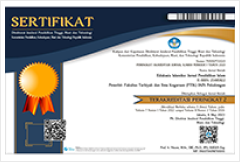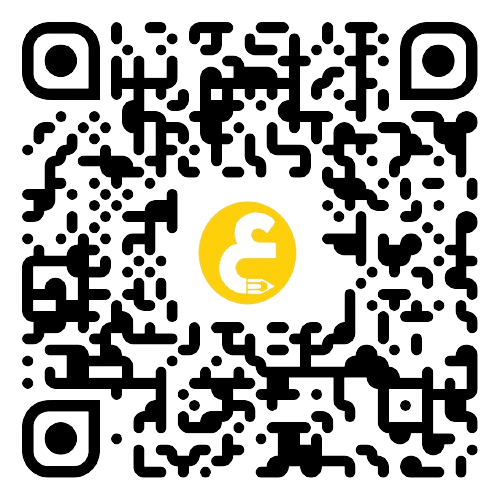Pendidikan Kritis dan Strategi Authentic Learning: Studi Konsep Pendidikan KH. Ahmad Dahlan dan Paulo Freire
DOI:
https://doi.org/10.28918/jei.v5i1.1063Keywords:
Islamic Education, Authentic Learning, Dahlan and FreireAbstract
Education in Indonesia has not fully solved the social problems. Therefore, there should be improvement of the education quality. The notion of KH. Ahmad Dahlan and Paulo Freire can be used as models in the implementation of education in Indonesia in order to be able to solve the social problems. This study aims to describe the concept of KH. Ahmad Dahlan and Paulo Freire in education including the big idea of the concept of education and its implementation in the learning that includes learning strategies, approaches and methods. This study uses qualitative approach and literature study as its research method. The data were obtained through collecting some artifacts, documents and other relevant articles. Finally, this study provides four points as conclusions. First, both KH. Ahmad Dahlan and Paulo Freire used the concept of critical education. Second, the strategy used to implement educational ideas is authentic learning strategy. They led their students into experienced phenomena. Third, both of them chose student center learning approach, or learning that focuses on students. Fourth, the method used was dialogue. The four points are obviously relevant to the current implementation of education system in Indonesia. Conceptually, the learning strategy, approach, as well as method used by the two figures are in line with the 2013 curriculum.
References
Aji, W. N. (2017). Operasi Metode Instruksi Sendiri Dengan Program ( Programmed Self-Instructional Methods ) Dalam Pengajaran Bahasa Dan Sastra Indonesia Kurikulum 2013. Magistra, 29(100), 44–49.
Al-Husein, M. S. (1999). Kritik Sistem Pendidikan. Bandung: Bandung : Pustaka Kencana.
Ali, F. (2018). Incorporating Values of Moderate Islam for the 21 st Century Learners in an English as a Foreign Language Class. Edukasia Islamika: Jurnal Pendidikan Islam, 3(1), 18–31. https://doi.org/https://doi.org/10.28918/jei.v3i1.1676
Ali, H. A. M. (1995). Alam pikiran Islam modern di Timur Tengah. jakarta: Jakarta : Djambatan.
Ali, M., Kuntoro, S. A., & Sutrisno. (2016). Pendidikan Berkemajuan: Refleksi Praksis Pendidikan K.H. Ahmad Dahlan. Jurnal Pembangunan Pendidikan : Fondasi Dan Aplikasi, 4(1), 43–58. https://doi.org/https://doi.org/10.21831/jppfa.v4i1.7821
Alifiyah, H. Y. (2013). Konsep Pendidikan Imam Zarnudi dan Paulo Freire. Jurnal Pendidikan Agama Islam, 2(2), 201–221. https://doi.org/https://doi.org/10.15642/jpai.2013.1.2.201-221
Arofah, S., & Jamu’in, M. (2015). Gagasan Dasar dan Pemikiran Pendidikan Pendidikan Islam K.H Ahmad Dahlan. Tajdid: Jurnal Pemikiran Dan Gerakan Muhammadiyah, 13(2), 114–124.
Burhani, A. N. (2004). Muhammadiyah JAWA diterjemahkan dari Te Muhammadiyah’s attitude to Javanese Culture in 1912-1930: Appreciation and Tension Karya Ahmad Najib Burhani, Tesis Master, Universitas Leiden, Belanda, 2004. Al-Wasat Publishing House: Jakarta.
Callison, D., & Lamb, A. (2004). Audience Analysis. School Library Media Activities Monthly, (Vol. 21). ProQuest Central.
Escobar, M. (2016). Sekolah Kapitalisme Yang Licik (Terjemahan Mundi Rahayu). Yogyakarta: Yogyakarta : IRCiSoD.
Fakih, M. (2001). Pendidikan Popular:membangun Kesadaran Kritis. Yogyakarta: Yogyakarta : Insistpress.
Firmansyah, D. (2015). Pengaruh Strategi Pembelajaran dan Minat Belajar Terhadap Hasil Belajar Matematika. Jurnal Pendidikan Unsika, 3(1), 34–44. https://doi.org/10.24114/jtp.v6i2.4996
Freire, P. (2000). Pedagogy Of Freedom : Ethics, Democracy, and Civic Courage (Critical P). New York: New York :Rowman & Littlefield Publishers.
Freire, P. (2013). Pedagogy of the oppressed. New York: New York: The Continuum International Publishing Group Inc.
Giroux, H. A. (2010). Rethinking education as the practice of freedom: Paulo Freire and the promise of critical pedagogy. Policy Futures in Education, 8(6), 715–721. https://doi.org/http://dx.doi.org/10.2304/pfie.2010.8.6.715
Glass, R. D. (2001). On Paulo Freire’s Philosophy of Praxis and the Foundations of Liberation Education. Educational Researcher, 30(2), 15–25. https://doi.org/10.3102/0013189X030002015
Hakim, T. (2010). Belajar Secara Efektif. Jakarta: Jakarta :Niaga Swadaya (group Penebar Swadaya).
Herrington, J., Oliver, R., & Reeves, T. C. (2003). Patterns of engagement in authentic online learning environments. Australasian Journal of Educational Technology, 19(1), 59–71. https://doi.org/10.14742/ajet.1701
Lenggono, W. (2018). Lembaga Pendidikan Muhammadiyah (Telaah Pemikiran K.H. Ahmad Dahlan Tentang Pembaruan Pendidikan Islam Di Indonesia). Islamadina Jurnal Pemikiran Islam, 19(1), 43–62. https://doi.org/10.30595/islamadina.v19i1.2897
Lombardi, M. M. (2007). Anger over lack of parking at Glasgow’s super hospital. (D. G. Oblinger, Ed.), Educase Learning Initiative.
Maina, F. W. (2004). Authentic Learning: Perspectives from Contemporary Educators. Journal of Authentic Learning, 1(1), 1–8.
Mulkhan, A. M. (2008). Islamic Education and Da’wah Liberalization: Investigating Kiai Achmad Dachlan’s Ideas. Al-Jami’ah: Journal of Islamic Studies, 46(2), 401. https://doi.org/10.14421/ajis.2008.462.401-430
Mustapa, L. (2017). Pembaruan Pendidikan Islam: Studi atas Teologi Sosial Pemikiran K.H. Ahmad Dahlan. Jurnal Ilmiah AL-Jauhari (JIAJ), 2(1), 90–111.
Nasution, W. N. (2017). Strategi Pembelajaran. Medan: Perdana Publishing.
Nurhadi, R., & Sudar. (2015). Basis Filosofi Pendidikan Nasional ( Studi Terhadap Pemikiran Pendidikan Ki Hajar Dewantara , K . H . A . DAHLAN , Dan K . Hasyim Asyari. Jurnal Pendidikan Surya Edukasi, 1(1), 45–58.
Nuris, A. (2017). Ahmad Dahlan Dan Pesantren: Gerakan Pembaharuan Pendidikan, Dakwah, Dan Pemberdayaan Masyarakat Di Indonesia. Dirosat : Journal of Islamic Studies, 1(2), 243–258. https://doi.org/10.28944/dirosat.v1i2.15
Pane, A., & Dasopang, M. D. (2017). Belajar dan Pembelajaran. Fitrah Jurnal Kajian Ilmu-Ilmu Keislaman, 03(2), 333–352. https://doi.org/doi: https://doi.org/10.24952/fitrah.v5i2
Parwati, N. N., Suryawan, I. P. P., & Apsari, R. A. (2018). Belajar dan Pembelajaran. Depok: Rajawali Pers.
Pramudya, W. (2001). Mengenal Filsafat Pendidikan Paulo Freire : Antara Banking Concept of Education, Problem Posing Method, dan Pendidikan Kristen di Indonesia . Veritas : Jurnal Teologi Dan Pelayanan, 2(2), 245–255. https://doi.org/10.36421/veritas.v2i2.63
Rule, A. (2006). The components of authentic learning. Journal of Authentic Learning, 3(1), 1–10.
Sanjaya, W. (2008). Kurikulum dan Pembelajaran (Teori & Praktek KTSP). Jakarta: Jakarta : Kencana Media Group.
Soedja’, H. (1998). Muhammadiyah dan Pendirinya. Yogyakarta: Yogyakarta : Majelis Pustaka PP Muhammadiyah.
Sumar, W. T., & Razak, I. A. (2016). Strategi pembelajaran dalam implementasi kurikulum berbasis soft skill. Yogyakarta: Deepublish.
Syaikhudin, A. (2012). Konsep Pemikiran Pendidikan Menurut Paulo Freire Dan KI Hajar Dewantoro. Cendekia, 10(1), 79–92. https://doi.org/doi:https://doi.org/10.21154/cendekia.v10i1.403
Taylor, E. W., & Cranton, P. (2012). The Handbook of transformative learning : Theory, research and practice. San Fransisco: San Fransisco : Jossey-Bass.
Winarso, W. (2014). Membangun Kemampuan Berfikir Matematika Tingkat Tinggi Melalui Pendekatan Induktif, Deduktif Dan Induktif-Deduktif Dalam Pembelajaran Matematika. Eduma : Mathematics Education Learning and Teaching, 3(2), 95–118. https://doi.org/10.24235/eduma.v3i2.58






















